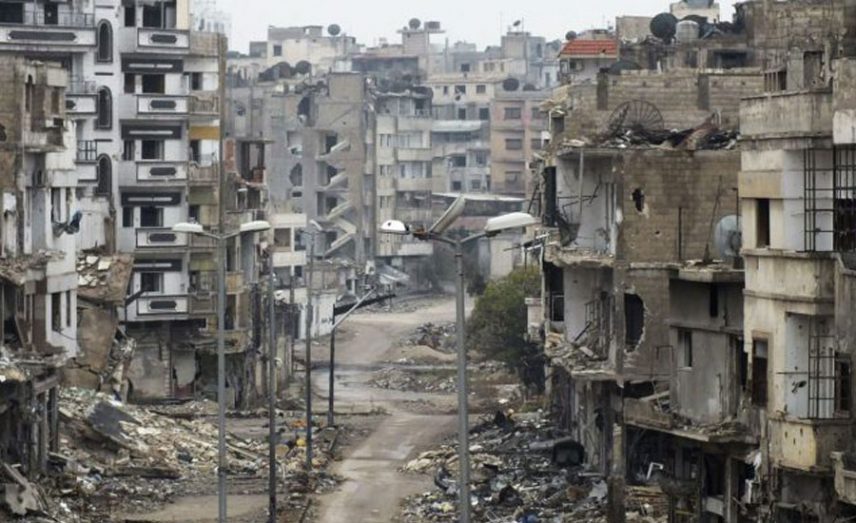Lebanese participation in Syria’s reconstruction has been the focus of recent talk as companies inside and outside Lebanon have begun to prepare themselves ahead of this coming stage. This coincides with the reduction in the pace of fighting on various Syrian fronts after years which saw destruction affecting most Syrian cities, especially Aleppo, Homs, Daraa, those in the Damascus countryside, Raqqa and Deir-ez-Zor.
Despite the Assad regime rushing to start the reconstruction process by announcing an end to the battles and its alleged “victory,” giving President Bashar al-Assad legitimacy, participation in this field is primarily for commercial reasons, as the rehabilitation process for countries that have experienced war is likely to be profitable for any company that participates in it. But doubts remain about the capacities of Lebanon’s own companies.
The number of Lebanese industrial projects proposed for reconstruction in Syria are 153, according to the director of Malia Holding, Shakib Shehab, who said in a recent speech during the Lebanese national energy conference: “The Lebanese authorities need to hurry, starting now, to take all the legislative and executive procedures so as not to miss the chance to participate in the [Syrian] reconstruction phase,” according to the Lebanese newspaper Al-Akhbar.
Before this statement, the Lebanese politician said that companies had been founded in Germany by Lebanese leaders to invest secretly in Syria, with talk of about $200 billion as the beginning sum for reconstruction.
Former minister Abdel Rahim Mrad said: “The Syrian war is in its final stages, and the rebuilding process will begin with the new year. This means that everyone will go to work in Syria,” adding that, “Then the problem will be resolved of the Syrians who will go back to help in reconstructing their country.”
Apart from the political dimensions, Lebanon’s participation in the reconstruction process is tainted by many doubts, especially the capabilities of the small country.
In this context, the chairman of the board of the bank BEMO, Riad Abaji, says: “Are Lebanon’s ports prepared to play this role? Is the Lebanese state considering how to develop the ports? And can it bear the cost of these improvements?”
Shakib Shehab of Malia Holding is trying to propose solutions for his part through “activating the Tripoli port as it is close to the Syrian border,” stressing the need to begin plans to rehabilitate infrastructure, including railroads.
The Lebanese side will then be able to help in reconstruction based on its experience in engineering consulting and in residential projects, as well as its wide experience in tourism and how to develop it in Syria after the war, in areas such as Lattakia.
Assad had announced previously that “preference in reconstruction will go to the countries that stood alongside Syria and these friendly countries.”
In the event that Lebanon succeeds in participating in Syria’s reconstruction in the future, it will receive large economic profits and gain, and could have a hand alongside Russia and Iran in the political process.
This article was translated and edited by The Syrian Observer. Responsibility for the information and views set out in this article lies entirely with the author.


